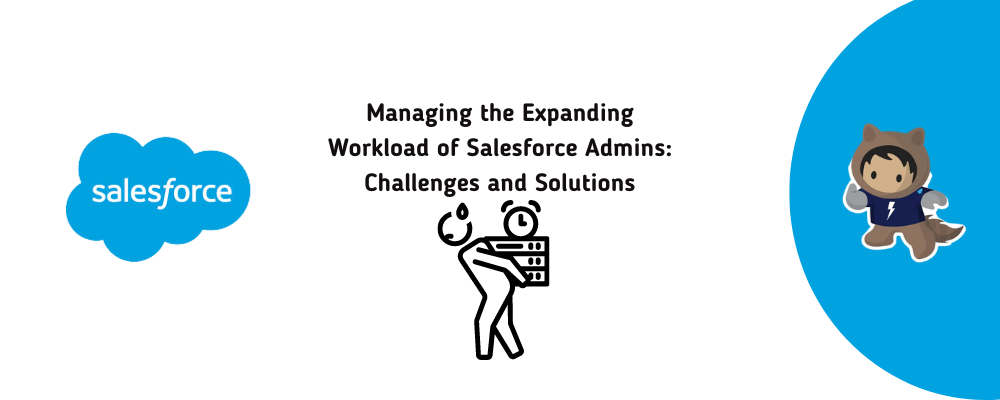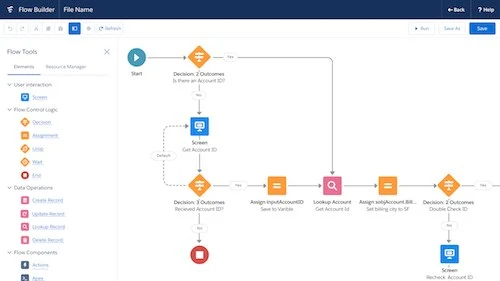In today’s fast-paced business world, Salesforce Administrators (Admins) are often the unsung heroes behind the smooth functioning of many organizations. These professionals juggle numerous tasks, ranging from user management to complex data analysis, all while ensuring the Salesforce platform runs seamlessly. But is this too much for one person to handle? In this article, we’ll explore the various responsibilities of Salesforce Admins, the challenges they face, and whether these duties are becoming overwhelming.
Salesforce Trail Head to Assist with all your training
The Expanding Role of Salesforce Admins
Salesforce Admins have seen their roles expand significantly over the years. Initially, their responsibilities were primarily focused on managing users and maintaining the system. However, as Salesforce has grown in complexity and capabilities, so too have the tasks assigned to Admins.
Key Responsibilities of a Salesforce Admin
Let’s break down the primary duties of a Salesforce Admin:
- User Management: Admins are responsible for creating, managing, and deactivating user accounts. They ensure that each user has the appropriate level of access and permissions.
- Data Management: This includes importing, updating, and cleaning data to maintain the integrity of the information within Salesforce.
- System Maintenance: Admins must regularly update the system, apply patches, and monitor system performance to ensure it runs smoothly.
- Customization and Configuration: Admins customize Salesforce to meet the unique needs of their organization. This involves creating custom fields, workflows, and reports.
- Training and Support: Admins are often the go-to resource for training new users and providing ongoing support to existing users.
The Increasing Complexity of Salesforce
Salesforce is no longer just a CRM; it has evolved into a multi-faceted platform that integrates with numerous other tools and systems. This integration brings added complexity, and Admins are expected to manage these integrations seamlessly.
The Impact of Automation and AI
With the advent of automation and artificial intelligence (AI), Salesforce Admins now have to manage automated processes, predictive analytics, and more. While these tools can make certain tasks easier, they also require a deep understanding of new technologies.
Are Salesforce Admins Overwhelmed?
Given the broad range of responsibilities, it’s fair to ask: Are Salesforce Admins overwhelmed?
Signs of Overload
Many Admins report feeling stretched thin due to the increasing demands placed on them. Here are some signs that an Admin may be overwhelmed:
- Frequent Burnout: Admins experiencing frequent burnout is a clear sign of overload.
- Decreased Productivity: When too many tasks pile up, it’s challenging to maintain high productivity levels.
- High Turnover Rates: Organizations may see higher turnover rates among Salesforce Admins due to job dissatisfaction.
The Importance of Specialized Roles
One solution to this issue is the creation of specialized roles within the Salesforce ecosystem. For example, organizations could benefit from having a Data Analyst, a System Architect, and a User Support Specialist, all working alongside the Salesforce Admin. This would allow the Admin to focus on their core responsibilities without being spread too thin.
The Role of Continuous Learning
Continuous learning is crucial for Salesforce Admins to keep up with the ever-evolving platform. However, this can add to their already full plates.
The Value of Certifications
Certifications are a valuable way for Admins to prove their expertise and stay current with the latest Salesforce features. However, the time and effort required to obtain these certifications can be significant.
Ongoing Training Needs
Admins must continually train themselves on new updates and features to remain effective in their roles. This ongoing training is essential but can be time-consuming.
How Organizations Can Support Salesforce Admins
Organizations play a critical role in ensuring their Salesforce Admins are not overwhelmed. Here are some strategies to provide support:
Providing Adequate Resources
Organizations should ensure that Admins have the necessary resources to perform their jobs effectively. This might include additional staff, training programs, or tools to streamline their work.
Encouraging Work-Life Balance
Promoting a healthy work-life balance is essential. Organizations should encourage Admins to take breaks, manage their workload, and avoid burnout.
Implementing Clear Job Roles
Clearly defining job roles and responsibilities can prevent Admins from taking on too much. By delineating tasks, organizations can ensure that Admins focus on their core duties.
Conclusion
Salesforce Admins are invaluable assets to any organization, but the expanding scope of their responsibilities can lead to overload. By recognizing the signs of overwhelm, encouraging continuous learning, and providing adequate support, organizations can help their Admins thrive in their roles. Specialization within the Salesforce ecosystem could also be a solution to prevent burnout and ensure that each task is handled by a dedicated expert.
5 Unique FAQs
Q1: What are the primary responsibilities of a Salesforce Admin?
A Salesforce Admin manages users, data, and system maintenance while also customizing and configuring the Salesforce platform to meet organizational needs.
Q2: How can Salesforce Admins avoid burnout?
Admins can avoid burnout by delegating tasks, focusing on continuous learning, and maintaining a healthy work-life balance.
Q3: Is continuous learning necessary for Salesforce Admins?
Yes, continuous learning is essential for Salesforce Admins to keep up with the platform’s updates and new features.
Q4: What can organizations do to support their Salesforce Admins?
Organizations can support their Admins by providing adequate resources, promoting work-life balance, and clearly defining job roles.
Q5: Should organizations consider specialized roles for Salesforce?
Yes, specialized roles within the Salesforce ecosystem can help distribute tasks more effectively and prevent Admins from becoming overwhelmed.
Salesforce AI Specialist Certification: A Game-Changer in Tech




